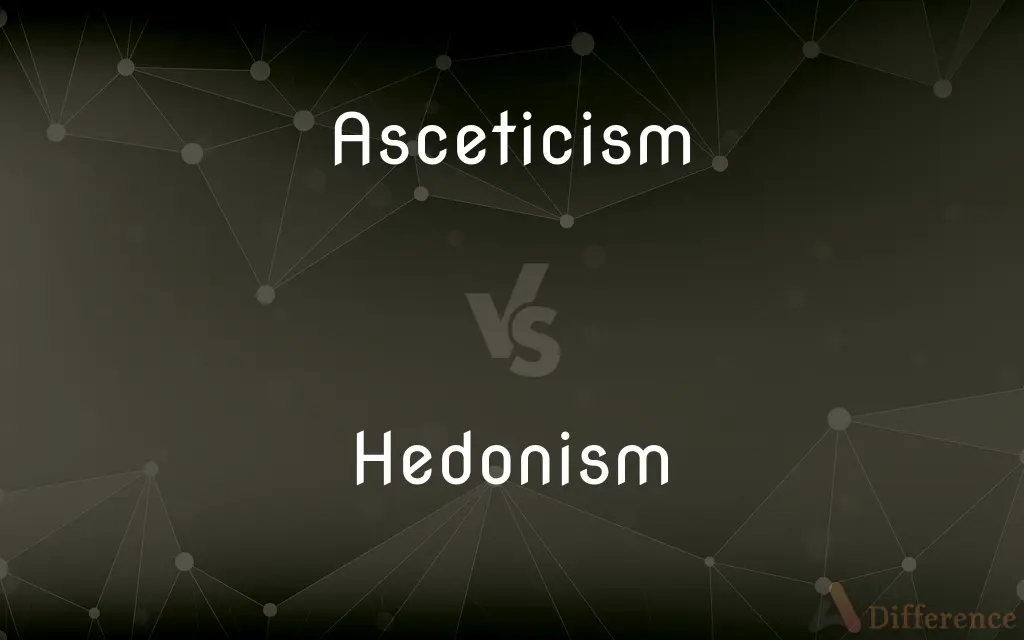Asceticism vs. Hedonism — What's the Difference?

Difference Between Asceticism and Hedonism
ADVERTISEMENT
Compare with Definitions
Asceticism
Asceticism (; from the Greek: ἄσκησις, romanized: áskesis, lit. 'exercise', 'training') is a lifestyle characterized by abstinence from sensual pleasures, often for the purpose of pursuing spiritual goals. Ascetics may withdraw from the world for their practices or continue to be part of their society, but typically adopt a frugal lifestyle, characterised by the renunciation of material possessions and physical pleasures, and also spend time fasting while concentrating on the practice of religion or reflection upon spiritual matters.
Hedonism
The pursuit of pleasure; sensual self-indulgence.
Asceticism
Severe self-discipline and avoiding of all forms of indulgence, typically for religious reasons
Acts of physical asceticism
Hedonism
Hedonism refers to a family of theories, all of which have in common that pleasure plays a central role in them. Psychological or motivational hedonism claims that our behavior is determined by desires to increase pleasure and to decrease pain.
Asceticism
The principles and practices of an ascetic; extreme self-denial and austerity.
ADVERTISEMENT
Hedonism
Pursuit of or devotion to pleasure, especially to the pleasures of the senses.
Asceticism
The doctrine that the ascetic life releases the soul from bondage to the body and permits union with the divine.
Hedonism
(Philosophy) The ethical doctrine holding that only what is pleasant or has pleasant consequences is intrinsically good.
Asceticism
The principles and practices of an ascetic; extreme self-denial and austerity.
Hedonism
(Psychology) The doctrine holding that behavior is motivated by the desire for pleasure and the avoidance of pain.
Asceticism
The condition, practice, or mode of life, of ascetics.
Hedonism
The belief that pleasure or happiness is the highest good in life. Some hedonists, such as the Epicureans, have insisted that pleasure of the entire mind, not just pleasure of the senses, is the highest good.
Asceticism
The doctrine that through renunciation of worldly pleasures it is possible to achieve a high spiritual or intellectual state
Hedonism
(countable) A general devotion to the pursuit of pleasure.
Asceticism
The trait of great self-denial (especially refraining from worldly pleasures)
Hedonism
The doctrine of the Hedonic sect; the pursuit of pleasure as a matter of ethical principle.
Asceticism
Rigorous self-denial and active self-restraint
Hedonism
The ethical theory which finds the explanation and authority of duty in its tendency to give pleasure.
Hedonism
The pursuit of pleasure as a matter of ethical principle
Hedonism
An ethical system that evaluates the pursuit of pleasure as the highest good
Share Your Discovery

Previous Comparison
Marvelous vs. Marvellous
Next Comparison
Transportation vs. Transit














































